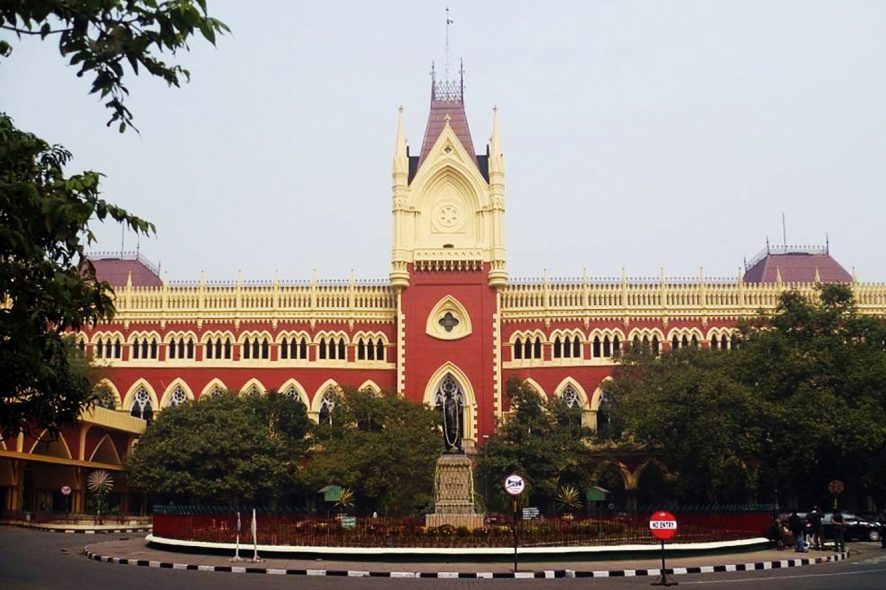Calcutta High Court: Ravi Krishan Kapur, J., while addressing an issue pertaining to Employees’ State Insurance Act, 1948, observed that,
The ESI Act provides for certain benefits to employees in case of sickness, maternity and employment injury and makes provisions for certain other matters in relation thereto. A perusal of the various sections of the Act would reveal that the Act is made applicable to all factories.
Present petition was filed challenging an order passed under Section 85B of the Employees’ State Insurance Act, 1948 whereby the Employees’ State Insurance Authorities levied penal damages of nearly Rs 60 lakhs under Section 85B of the Act on the petitioner establishment for the delay in making payment of its contributions for the period from September 2002 to March 2010.
By a conversion agreement between the owner of Jute Mill and petitioner 1, petitioner 1 was allowed to utilize the entire production capacity of the jute mill for the production of jute goods.
Further, the ESI authorities claimed that a sum of Rs 3,73,04,297 was in arrears out of which only a sum of Rs 1,10,97,511 was on account of ESI contributions and the rest represented damages and interest.
Petitioners contended that the above-stated dues said to be payable by the petitioners were primarily for the period prior to the agreement which had been executed between the owners of the jute mill and petitioner 1.
An impugned order came to be passed inter alia holding the petitioner company liable for a sum of Rs 59,61,588 on account of damages for the delayed payment of contributions for the period from September, 2002 to March, 2010.
Petitioner contended that the said order was liable to be set aside and quashed on the ground that the same was an unreasoned order.
Decision
Bench opined that the question as to whether the damages imposed under Section 85B of the Act are justiciable or not or whether the quantum of damages is in accordance with the principles for computing damages is certainly a dispute which would fall within the ambit of clause (g) of Section 75 (1) of the Act.
Court further added that, under Section 75(1)(g) of the Act, the Insurance Court would ordinarily have jurisdiction to decide the question as to whether damages imposed under Section 85B of the ESI Act are justifiable or not.
Bench referred to the Supreme Court decision in B.M. Laxmanamurthy v. Employees’ State Corporation, Bangalore (1974) 4 SCC 365, wherein it was held that
“the Act is a beneficial piece of social security legislation in the interests of labourers in factories at the first instance with the power to extend to other establishments”.
Thus, the Act is a welfare measure meant to provide certain benefits to the employees in certain cases of sickness, maternity and employment injury. It is also a well-settled principle of statutory interpretation that socio-economic legislation should be interpreted liberally with an end to promote the scheme of the Act and avoid the mischief which it seeks to control.
Crux of the dispute in this petition pertains to the applicability and imposition of the damages by the ESI authorities under Section 85B of the Act.
What is the intention behind the insertion of Section 85B of the ESI Act?
To deter the employer who makes any default or delay in depositing the contribution amount.
In the present matter, there was a delay of 8 years on the part of the establishment in making payment of their ESI dues.
Delayed payment, which means untimely payment gives rise to a breach of the obligations under the Act and for such failure and omission (if not explained) the employer exposes itself to recovery of damages.
Hence, the levy of damages as per Section 85B of the Act was fully justified and warranted.
In view of the admitted indisputable and unassailable fact of delay for more than 8 years in making payment of the ESI contributions, no reasonable or prudent person apprised of these facts could take a different view on the question of whether such non-payment on the part of the petitioners was intentional or not.
Petitioner failed to show any mitigating factors or offer any cogent explanation.
Court further added that in the absence of any prescribed special period of limitation for levy of damages under the Act, the levy of damages or penalty for defaults beyond the period of 3 years cannot be rejected as being beyond the jurisdiction of the respondent Corporation.
Section 93A of the Act clearly provides that both the employer and the person to whom the factory or establishment has been transferred remain jointly and severally liable to pay the amounts due in respect of any amount under the Act.
In view of the above-stated Section, Court stated that a transferee cannot claim that he being the transferee of an establishment is not liable to pay the dues accruing before the transfer.
Court found no aspect of limitation insofar as damages were concerned.
Therefore, failure on the part of the establishment to carry out their statutory obligations was in conscious and wilful disregard of their lawful obligations.
“An the absence of any prescribed special period of limitation for levy of damages under the Act, the levy of damages or penalty for defaults beyond the period of three years cannot be rejected as being beyond the jurisdiction of the respondent Corporation.”
Respondent authorities were directed to take all available steps in accordance with law for expeditious recovery of the balance amount payable under the impugned order by the petitioner.[Premchand Jute & Industries (P) Ltd. v. Employees State Insurance Corporation, 2020 SCC OnLine Cal 1574, decided on 18-08-2020]






